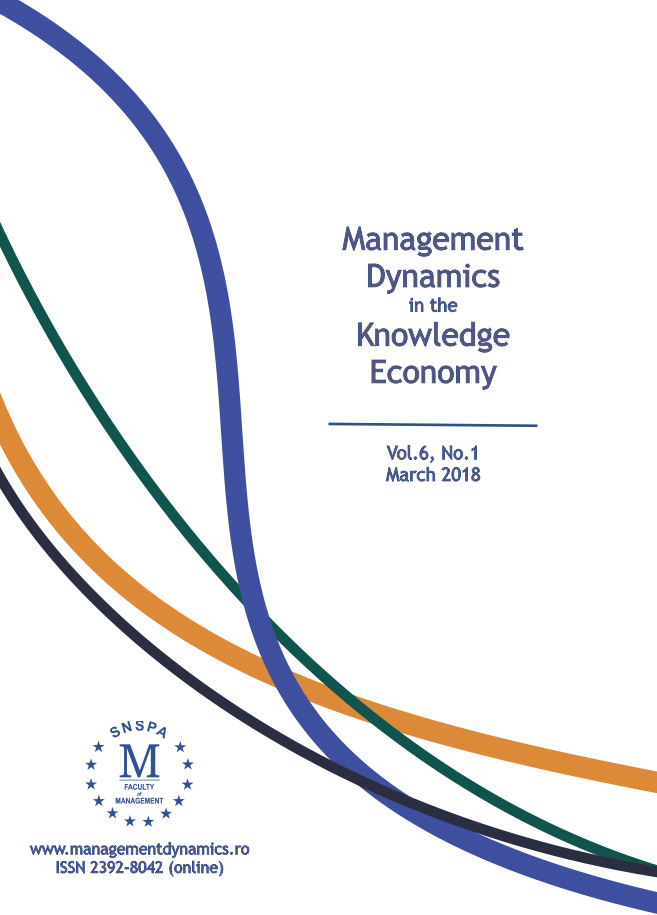Entrepreneurial Motivations in the European Union Countries: An Empirical Approach
Entrepreneurial Motivations in the European Union Countries: An Empirical Approach
Author(s): Valentina Diana Rusu, Angela RomanSubject(s): Economy, Business Economy / Management
Published by: Asociatia Romano-America a Managerilor de Proiect pentru Educatie si Cercetare
Keywords: entrepreneurial motivations; entrepreneurial perception; EU countries; panel data
Summary/Abstract: Entrepreneurship is considered a significant determinant for the economic development of a country but is also important for new job creation and innovation. Understanding and examining the factors which affect the decision of individuals to become entrepreneurs play a significant role for the decision makers in order to identify the adequate measures that can support and develop the entrepreneurial activity. The main purpose of this paper is to identify the key factors that determine entrepreneurial motivations of individuals, but also to analyze empirically the impact of these factors for a sample of 18 countries members of the European Union, for a period between 2002 and 2015. We performed our empirical analysis using data offered by the Global Entrepreneurship Monitor and the World Bank. We used panel data regression models. As dependent variables for our econometric models, we used, alternatively, total entrepreneurial activity rate, necessity driven entrepreneurial activity, and opportunity-driven entrepreneurial activity. As regards the independent variables considered, we took into account six macroeconomic indicators and four indicators which measure the perceptions and attitudes regarding entrepreneurship. The results of the panel data regression models show that the entrepreneurial motivations are influenced by the level of economic development of a country and total tax rate (only necessity entrepreneurs), unemployment rates, inflation rates and access to financial resources. Also, all the considered perceptual indicators (fear of failure, entrepreneurial intentions, perceived capabilities, and opportunities) have a significant effect on entrepreneurship according to its motivation, but these effects differ according to the motivation of individuals. Overall, this paper emphasizes that the economic conditions from an EU country but also the perception of entrepreneurs are important determinants of entrepreneurial motivation.
Journal: Management Dynamics in the Knowledge Economy
- Issue Year: 6/2018
- Issue No: 1
- Page Range: 9-31
- Page Count: 23
- Language: English

